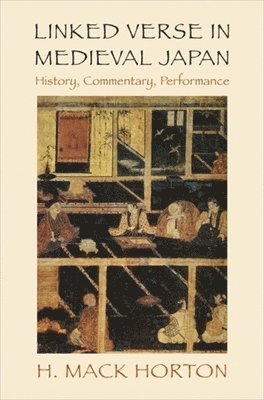Kommande

1119:-
Linked verse (renga) was the most popular form of poetry in Japan's medieval era (c. 1200-1600 CE). Renga poets linked verses of seventeen and fourteen syllables into long sequences in accordance with complex rules and literary allusions; the first verse, which initially stood alone, was the ancestor of the modern haiku. Courtiers, warriors, and commoners alike practiced linked verse in an atmosphere of literary artistry, scholarship, social sensitivity, and charged competition. The masters were often invited at great expense to warrior domains to preside at linked-verse sessions and provide instruction in the art and in allied works of the classical canon, such as The Tale of Genji. Some of Japan's most famous poets, among them S?gi and Bash?, not only composed renga sequences still revered today but also made important contributions to the study of renga history, theory, composition, and etiquette. This book is the most comprehensive work in English on premodern Japanese linked verse. It includes a history of the genre in both its formal (ushin) and unorthodox (haikai) manifestations up through the time of Bash?, an introduction to linked-verse composition and commentaries, and an overview of the art's performative aspects. These three parts are each linked to original English translations: an early treatise on renga history, theory, and rules; a particularly intricate hundred-verse sequence and its contemporary commentaries; and two guides to mental attitude and deportment at a renga session. Wide-ranging and erudite, Linked Verse in Medieval Japan is a masterful account of the history, theory, and practice of one of Japan's great art forms.
- Format: Inbunden
- ISBN: 9780231191142
- Språk: Engelska
- Antal sidor: 1120
- Utgivningsdatum: 2025-09-23
- Förlag: Columbia University Press

